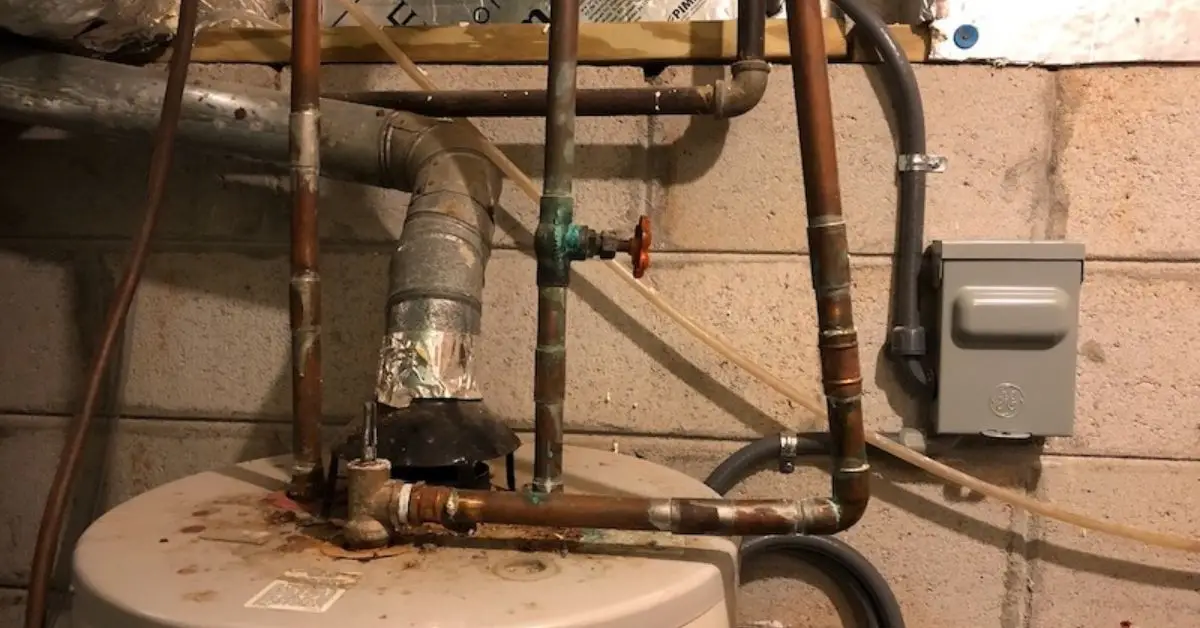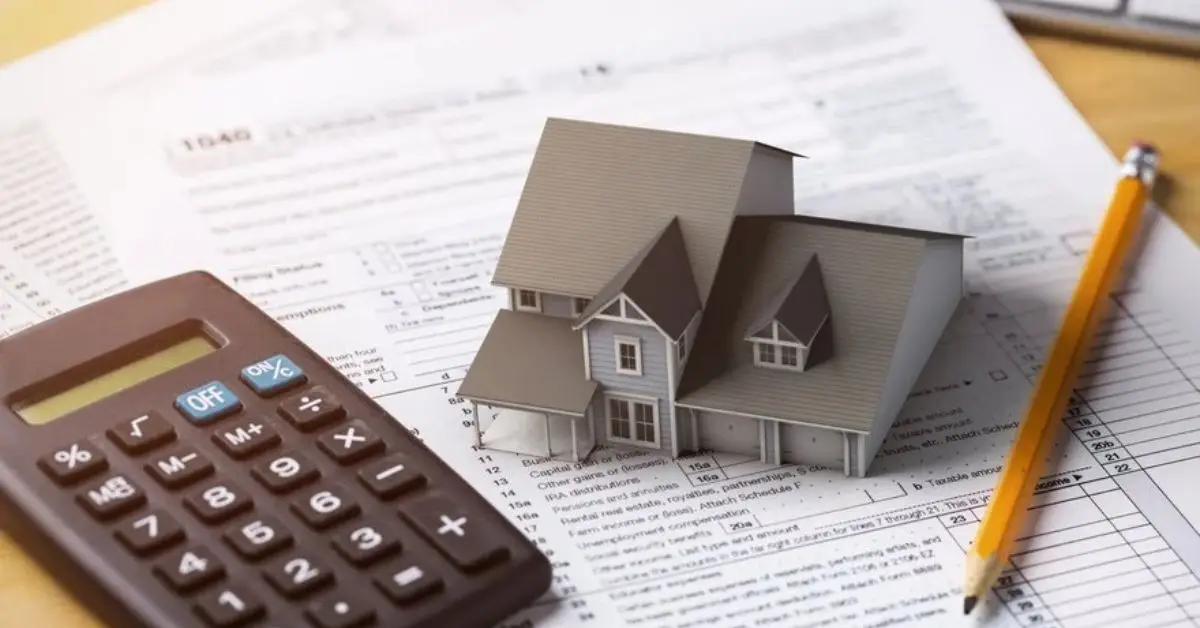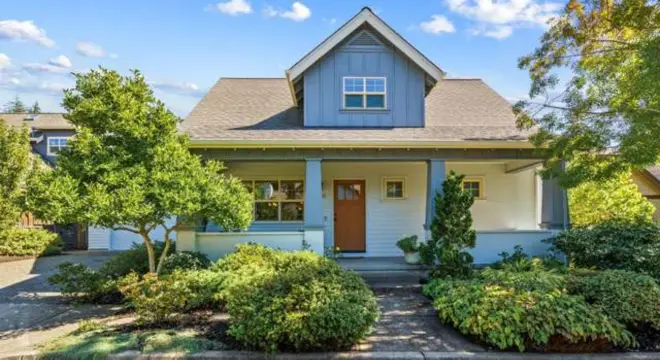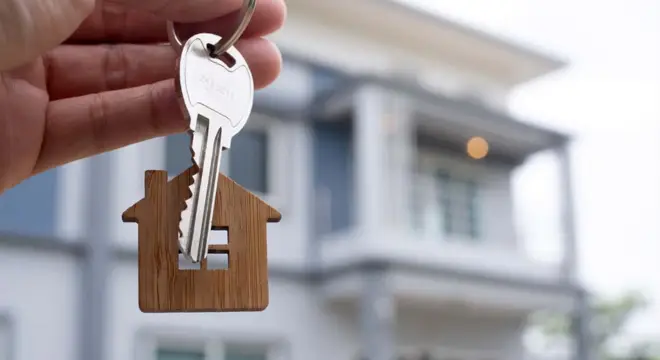Before You Buy: 15 Essential Questions to Ask When House Hunting
You don’t know how much is hiding behind freshly painted walls until it’s too late.
When I started house-hunting, I thought I was asking all the right questions — price, square footage, neighborhood, schools. But within weeks of moving in, the “dream home” turned into a list of expenses: faulty wiring, a leaking roof, and a neighbor’s dog that never stopped barking.
Truth is, most buyers don’t ask enough questions. Or worse — they ask the wrong ones.
In today’s market, with rising interest rates and unpredictable inventory, you don’t get second chances. Sellers know what to hide. Listing agents won’t always tell you what you really need to know. And unless you know exactly what to ask, you’ll walk into someone else’s problem — and pay for it.
This article isn’t just a checklist. It’s a breakdown of the smartest, most overlooked questions you need to ask — based on real buyer mistakes, expert advice, and gaps I’ve found in most online guides.
Whether it’s your first home or your fifth, this guide will help you buy with your eyes wide open — not just your heart. First-time buyer? Start with these 10 simple steps to buying a house in 2025 to lay the right foundation.
Let me ask you this before we dive in: What’s the one thing you’re most worried about when buying a house?
Let me know in the comments.
Why Is the Seller Selling & Market Context?
Because motivation tells you more than a listing ever will.
When you’re buying a home, one of the smartest things you can do is understand the why behind the sale. Seller motivation shapes your leverage. It reveals hidden urgency, possible deal-breakers, and whether you’re walking into a negotiation — or a trap.
This isn’t just about curiosity. It’s about protecting yourself from surprise costs, future regret, or wasting time on homes that were never a good fit to begin with.
1. Why is the owner selling? How long have they lived there?
If the seller has owned the home for only a short time — say, less than two years — it’s worth asking why. People move for all kinds of reasons, but sudden sales can signal deeper issues: a job transfer, an unexpected expense, or something not quite right with the home or neighborhood.

This is one of the most telling questions a buyer can ask. It helps you understand whether the seller is looking for a quick exit, which could mean more room to negotiate.
You’re not just trying to get an answer. You’re watching how they answer — confidently, vaguely, or not at all.
2. How long has the property been on the market?
This one matters more than most buyers realize.
A listing that’s been sitting for a while — usually over 30 to 45 days — can suggest problems: poor pricing, tough inspections, or lack of buyer interest. It’s also a signal that you may have stronger negotiating power.
But watch for relisting tricks. Sellers or agents sometimes pull a property off the market and relist it with a fresh date to reset the “days on market” counter. Always ask your agent to show you the full listing history.
If the home has had recent price drops, that’s also your cue to ask why — and to consider making an offer below asking.
3. Recent sales history & price changes
This is where you separate inflated hype from real value.
Use Redfin or your agent’s MLS access to check how much the home sold for previously. If the current asking price is significantly higher, dig into whether upgrades or major renovations justify it.
Also check how it compares with similar homes in the area — price per square foot, tax history, and nearby sale prices.
Seller motivation, time on market, and pricing history give you real-world context — not just what the listing wants you to believe. The answers to these questions could either confirm that you’re looking at a solid investment… or save you from a costly mistake.
What would make you walk away from a house — even if everything looked perfect on paper? Let’s talk about it in the comments.
What’s the Structural & Systems Status?
Because small cracks today can turn into big bills tomorrow.
Most buyers walk through a house focusing on what they can see — the layout, the kitchen, the light. But the most expensive issues are often hidden under floors, behind walls, or on the roof.
Before you even think about making an offer, ask about the condition of the home’s core systems. These are the high-ticket items that can wreck your budget if they fail right after closing.
4. Age and condition of the roof, HVAC, water heater, electrical, plumbing
Ask for a rough age and service history of all the big systems. A roof nearing the 20-year mark, a 15-year-old water heater, or outdated electrical panels might not be immediate dealbreakers — but they are budgeting concerns.

According to Chase, these are some of the most common and costly post-purchase repairs.
If you’re serious about a property, have a licensed inspector review every one of these. And don’t just take the seller’s word — request maintenance records or past repair invoices if available.
5. Signs of water damage, mold, or damp (hidden or visible)
Mold isn’t just ugly — it’s a health hazard. And water damage often means more than just stains.
During your walkthrough, look for bubbling or peeling paint, musty odors, discolored baseboards, or warped flooring. These are subtle indicators of deeper problems: leaks, poor drainage, or long-term neglect.
This is why every walkthrough should involve more than a quick glance. Open cabinets, check ceilings, and trust your nose.
6. Any major renovations or additions? Were permits pulled?
If the seller mentions upgrades — like a converted garage, finished basement, or added sunroom — ask who did the work and whether permits were pulled. Unpermitted work can affect your ability to insure the home, finance it, or even keep it legally.
Ask your agent to double-check city permit records if anything seems off. Unfinished or non-compliant work might become your problem after closing.
Fit for the Buyer’s Current & Future Lifestyle
Because a home should grow with you, not limit you.
The dream house isn’t just about charm — it’s about functionality. Whether you’re planning to start a family, host guests, work remotely, or just age comfortably, the home’s layout, size, and flow matter more than the paint color or countertops.
7. Space & layout: bedrooms, garage, accessibility, guest accommodation
Ask yourself: will this home still work for you in five years?
Think about how many bedrooms you actually need — not just now, but if family grows or aging parents need to move in. If you’re considering buying a home with your parents, here’s what you’ll love — and what might drive you nuts: 6 things you’ll love and hate about buying a home with your parents. Do you need a home office? A guest room? A garage that fits two real cars, not just one and a lawnmower?
If you or a family member has mobility needs, check accessibility too — stairs, door width, and bathroom design matter more than they seem at first.
8. Included fixtures/appliances: what stays, what doesn’t?
Never assume the refrigerator, washer/dryer, or that custom chandelier are part of the deal. Always ask what’s included — and get it in writing.
As XpertSource points out, many buyers don’t realize until closing that key appliances aren’t part of the sale. That’s a budget shock no one needs after spending thousands on moving costs.
If something specific drew you to the home — like built-in shelving or mounted TVs — confirm whether they’ll be removed or left behind.
Every home hides a history. Your job isn’t to assume the best — it’s to ask with purpose, inspect with context, and protect your future. The more detailed your questions now, the fewer regrets you’ll carry later.
Have you ever walked away from a house because of a hidden issue? Drop your experience below — it could help someone else avoid the same mistake.
Neighborhood, Risk & Regulatory Context
Because you’re not just buying a house — you’re buying into a lifestyle.
Even the perfect home won’t feel right if the neighborhood doesn’t fit. From schools to zoning, external factors shape how you’ll live — and how easy it’ll be to sell down the line.
9. Neighborhood vibe: schools, commute times, safety, amenities
Visit the neighborhood during the day and at night. What feels quiet on a weekday morning might feel very different on a Saturday evening.

Ask yourself: How far is the nearest grocery store, park, or pharmacy? Can you picture walking the dog here? Do the streets feel safe? If you have kids — or plan to — school districts will impact both your decision and your resale value later.
Try driving the actual commute during rush hour before you commit. Online estimates rarely show the full picture.
10. Flood zone, local risk, upcoming developments or zoning changes
Flood zones and wildfire risk areas can change your insurance costs dramatically — or make a home uninsurable. Ask your agent to check local hazard maps and whether the seller is currently required to carry flood insurance.
Also, inquire about upcoming developments. That open field across the street? It might turn into an apartment complex, a shopping center, or a highway extension. Zoning changes could affect your view, privacy, or noise levels.
You want to know not just what the neighborhood is, but what it’s about to become.
11. Leasehold vs freehold, HOA fees & rules (if applicable)
If you’re buying in a community with an HOA (Homeowners Association), you need to know what rules you’re agreeing to — and what they’ll cost you every month.
Some HOAs have reasonable fees and maintain common areas well. Others have strict rules about paint color, parking, or even holiday decorations — and they can fine you for violations.
Also ask if the property is leasehold or freehold. In the U.S., most are freehold, but not all. A leasehold means you don’t fully own the land and may face ground rent, renewal terms, or resale complications.
True Cost of Ownership
Because your monthly payment is only the beginning.
It’s easy to fall in love with a home that just barely fits your budget. But smart buyers look beyond the sticker price. Ownership comes with layers of costs — and if you miss them, your “dream home” can become a financial strain.
12. Property taxes, utilities, insurance, and special assessments
Ask for the current annual property tax bill. It may change after your purchase, but it gives you a ballpark.
Also get estimates for utilities — electric, water, gas, internet — especially if you’re moving from a smaller space. Larger homes can come with much higher monthly bills.

Don’t forget insurance (homeowners, flood, possibly earthquake) and check whether the property is subject to special assessments or district taxes.
Understanding your total monthly outflow is critical to avoid payment shock.
13. Appraisal issues, inspection contingencies – and next steps
What happens if your inspection uncovers foundation cracks, mold, or an aging HVAC system? Or if the appraisal comes in lower than your offer?
You need a plan for how to renegotiate — or walk away.
This is where inspection contingencies protect you. Don’t skip them. And if you’re waiving contingencies to compete in a hot market, know exactly what risk you’re taking on.
Have a real conversation with your agent: What’s your limit? Where are you willing to flex?
14. Seller’s minimum acceptable price & negotiating flexibility
There’s often a gap between list price and what the seller is actually willing to take — especially if they’re under pressure.
A skilled agent can sometimes get hints during conversations with the listing agent. You can also watch for clues: recent price drops, long time on market, or vacant homes may signal flexibility.
Even a small negotiation win can save you thousands. But tact is everything — ask smart, not aggressive.
Next up: Deal-making & Decision Traps
The final piece of your home-hunting checklist: how to read the room, avoid emotional traps, and close the deal smartly — or walk away with zero regret. Ready?
Are You & Your Team Prepared?
Because even the right house can slip away if you’re not ready.
A lot of buyers lose out not because they couldn’t afford the home — but because they moved too slow, got outbid, or worked with the wrong people. Preparation doesn’t just reduce stress; it increases your odds of actually landing the home you want.
15. Real estate agent’s market experience & communication style
Your agent shouldn’t just “open doors.” They should guide, negotiate, and respond — fast.

Ask how many buyers they’ve helped in this neighborhood or price range. How do they prefer to communicate — phone, text, email? Do they explain things clearly? Are they honest when a house isn’t right?
An experienced agent who knows the local dynamics can spot overpricing, recognize red flags, and advise you when to push or pull back. It’s not about finding a friend — it’s about building a team that works.
16. Pre‑approval status and overall timeline plan
You should never start house hunting without a mortgage pre-approval in hand. It shows sellers you’re serious, helps you set a clear budget, and speeds up everything when it’s time to make an offer.
Beyond financing, map out your buying timeline: When do you want to move? What’s your ideal closing window? Can you handle a rent-back situation?
In competitive markets, speed and clarity win deals. The more prepared you are, the more confident (and attractive) your offer looks.
Less‑Common but Critical Questions
Because the smartest buyers ask what others don’t.
Most articles stop at the obvious — layout, price, condition. But sharp buyers go deeper, asking questions that protect their lifestyle, time, and long-term peace of mind. This section focuses on real-life issues other buyers often miss until it’s too late.
17. Broadband quality & cell reception inside the house
You’d be surprised how many beautiful homes sit in data dead zones.
If you work remotely, stream content, or rely on smart home devices, test the cell signal in different rooms. Ask about the internet service provider — and the actual speeds. Some rural or outer suburban homes still don’t support fast fiber or cable internet.
Boundary disputes, easements, property pins
This is where deals get messy — and expensive.
Ask if the property has had any recent surveys, or if the owner has experienced disputes with neighbors over fences, trees, or driveways. Are there shared easements (like a private road or utility access) that could restrict how you use your land?
If the seller can’t point out property pins or doesn’t know exact boundaries, consider getting a survey before closing. Easement disputes don’t just kill deals — they can make future resale harder too.
Before you put in an offer, one last visit can reveal everything your first walk-through missed. In the next section, we’ll walk you through exactly what to look for — and what to ask — before making the biggest financial decision of your life.
Smart Questions Combined
Because asking the right questions — in the right order — gives you real leverage.
House hunting can feel overwhelming. But when you break it down, it’s just about knowing what to ask, when to ask it, and how to use the answers to make confident decisions.
Below is a simple summary of all 15 smart questions we’ve covered — organized by theme. You can use this table as a mental checklist during showings, agent meetings, or even casual conversations with the seller.
Quick Summary Table
| Theme | Key Question |
|---|---|
| Seller & Market | Why is the owner selling? |
| How long has the home been on the market? | |
| Any recent price changes or previous sales history? | |
| Home Condition | What’s the age/condition of roof, HVAC, water heater, plumbing, and electrical? |
| Any visible or hidden signs of water damage, mold, or damp? | |
| Were there any renovations or additions? Were permits obtained? | |
| Lifestyle Fit | Does the space and layout suit your current/future needs? |
| What appliances or fixtures are included (or excluded)? | |
| Location Factors | What’s the neighborhood vibe: schools, commute, safety, amenities? |
| Is it in a flood zone or near future development or zoning changes? | |
| Are there HOA rules or fees? Leasehold or freehold? | |
| Costs & Process | What are the total ownership costs: taxes, insurance, utilities? |
| What happens if appraisal or inspection reveals issues? | |
| What’s the seller’s bottom line or flexibility on price? | |
| Final Layer | Is your real estate agent a good fit for you? |
| Are you pre-approved and timeline-ready? | |
| Any issues with broadband, cell signal, boundaries, or easements? |
Why Asking in the Right Order Helps
Start with the seller’s motivation and market context — it sets the tone for how much power you have as a buyer. Then focus on the condition of the home, so you’re not blindsided by repairs later.
After that, dig into lifestyle fit and location — because comfort and long-term happiness matter more than square footage. Finally, bring it home with financial reality and process readiness — making sure you’re prepared and protected when it’s time to make an offer.
This layered approach gives you the full picture without feeling scattered. It also builds trust with your agent and gives you a serious edge when it comes to negotiations.
Next steps: Bookmark this guide. Use it for every house you visit. The smartest buyers aren’t the ones with the highest budget — they’re the ones who ask the right questions at the right time. And once you’ve closed the deal, don’t move in just yet — here are 10 things to do immediately after buying your home.
Need More Help Before You Buy? Visit Build Like New for more practical guides, smart checklists, and no-fluff advice to help you buy with confidence.
Disclaimer: The information provided in this article is for general educational purposes only and does not constitute legal, financial, or real estate advice. Always consult with licensed professionals—such as real estate agents, attorneys, or financial advisors—before making any property purchase decisions.


